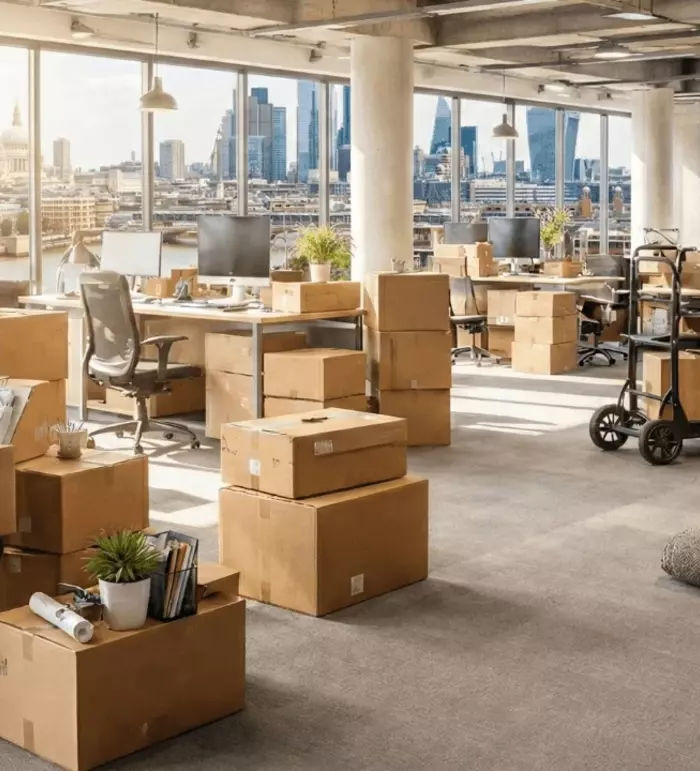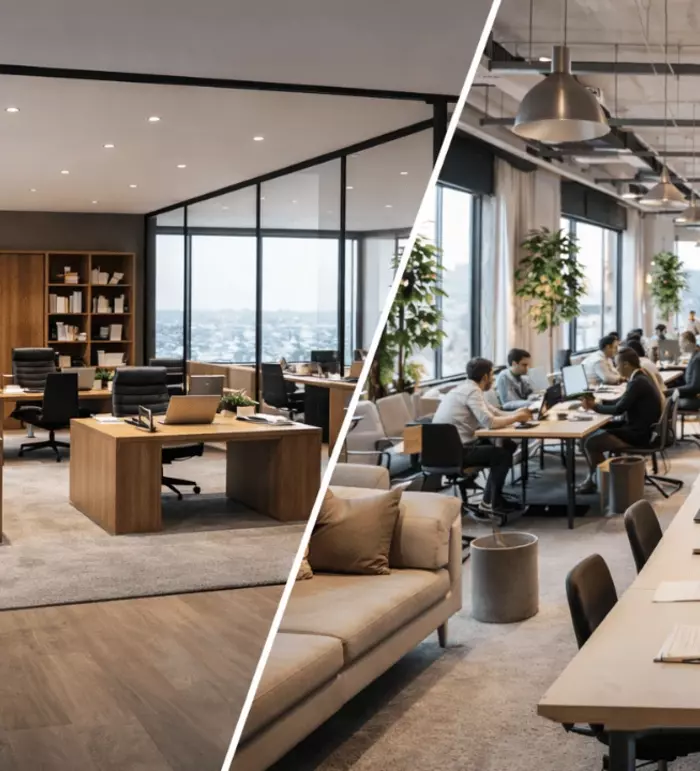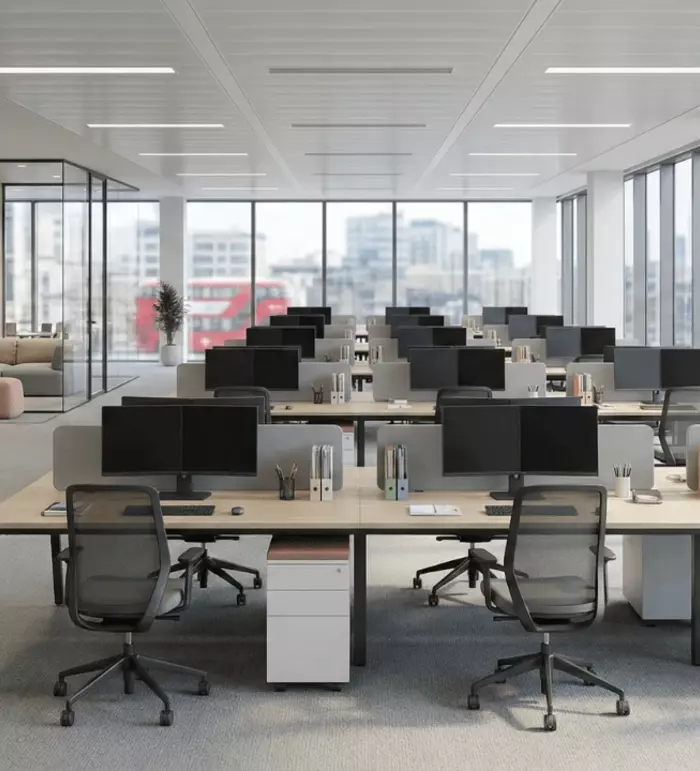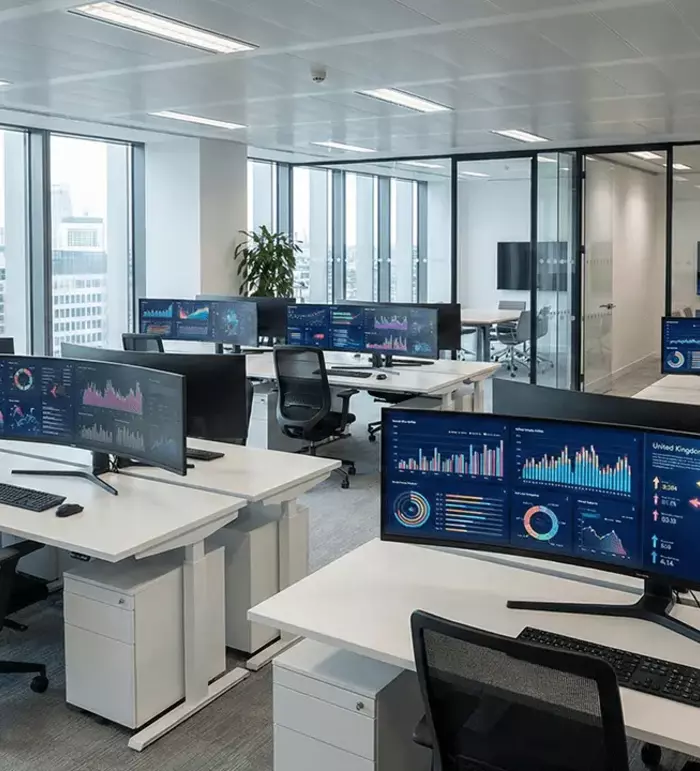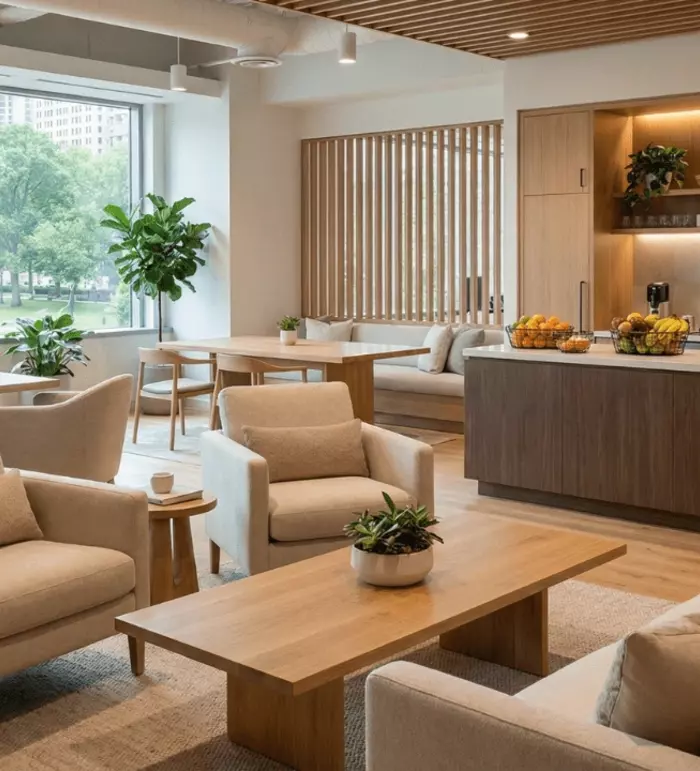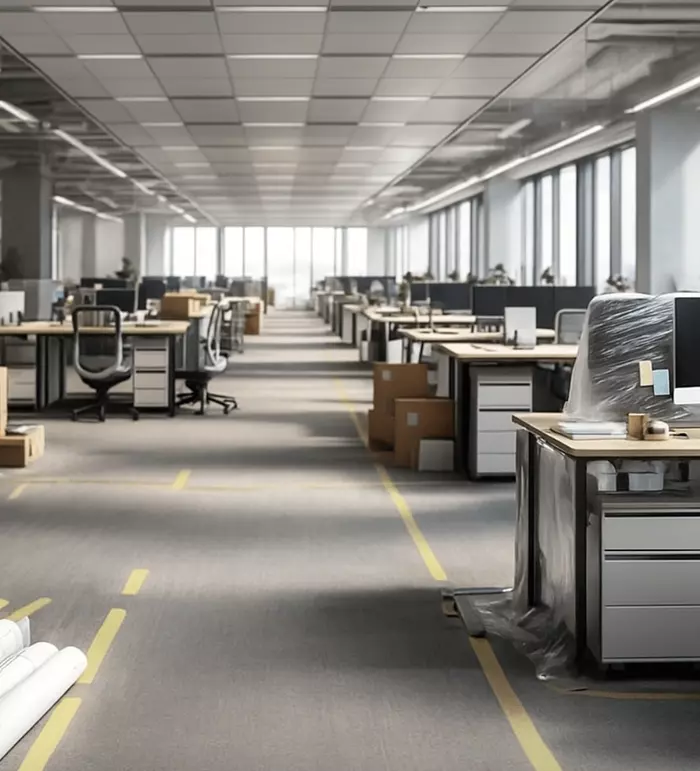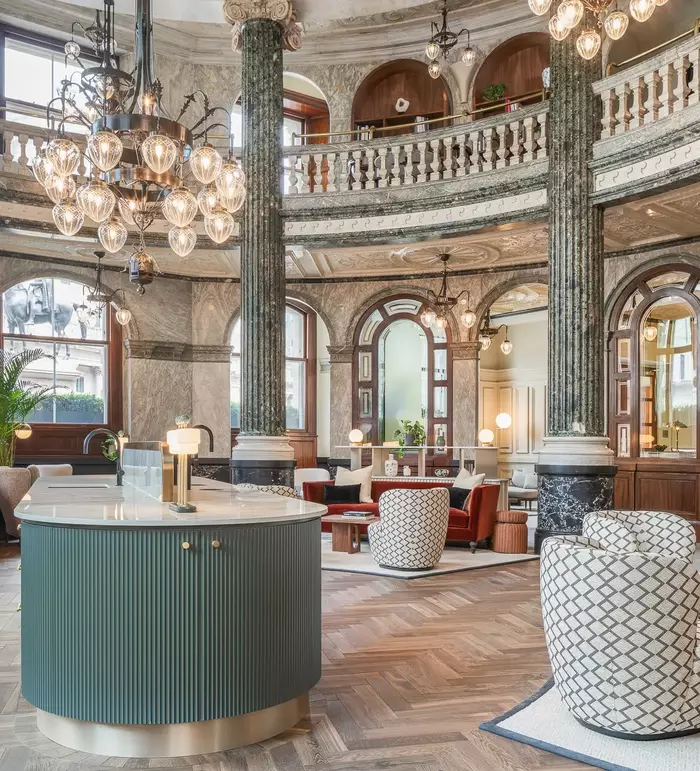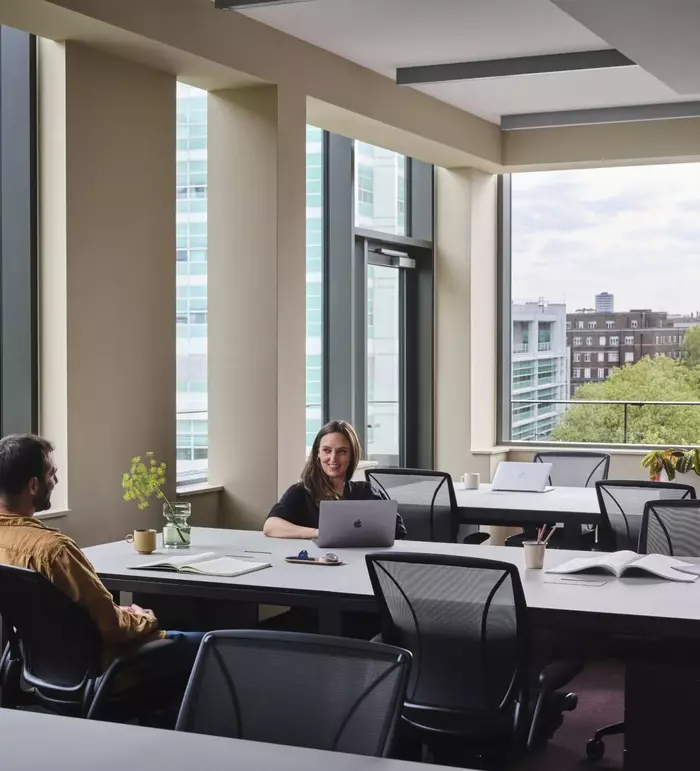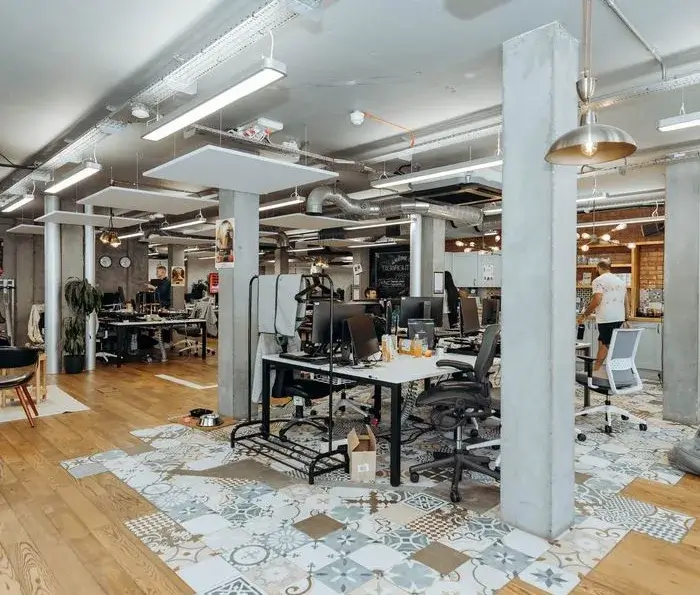In the new normal, how your office boosts your business and your employees is more important than ever.
Viewings are a crucial part of your serviced office search and there are so many factors to consider. With this in mind, we’ve prepared you an ‘Essentials to cover’ checklist. You’re welcome!
Flexioffices new White Paper found that 57% businesses are looking to downsize and those opting for flexible work contracts have doubled. People are also looking at moving sooner rather than later, with 55% planning to move within the next 3-6 months.
This means more and more people are viewing serviced offices who might not have been on a viewing like this before.
By the time you’re at serviced office viewing number one, you’ve probably established the basics: whether you’re up or downsizing and where you want to be based. But there are some hairier questions you should be asking at the viewing to get the best serviced office to help your business thrive.
Here’s our top five:
1. What Amenities does the price include?
Where in conventional spaces what you see is what you get, serviced offices can have many different spaces or ‘zones’ so it’s important to ask what amenities the price includes. Consider things like showers, bike storage, parking, dishwashers, irons… And make a note of:
Is there access to outdoor space?
A terrace, balcony or garden? And if so, what will you require this for? If it’s a pet-friendly building you might need it for your pooch, or just to pamper yourself in the sun come that one sunny day we get in London, usually around August…
What breakout space is available?
Some providers, such as WeWork accommodate tenants with relatively small desk space (35²ft per person) but large breakout areas. They often have sofas, tables, napping pods, relaxation rooms...the sky’s the limit when it comes to how much breakout space can vary. It’s also worth noting which spaces are communal and which you have access to. You might require a kitchen solely for your company’s use, for instance.
What are the opening hours?
It sounds obvious, but this is a really important thing to ask. As Jonathan Ward, Sales Manager at office provider Flexioffices explains,
“If you are a company that meets clients in the evenings - recruiting, for instance, your clients and staff need to be able to access your office.”
If your company requires reception staff to answer the phones in your company name; to greet clients, and handle deliveries it’s worth making a note of what hours reception work and the duties they perform.
2. What else does the price include?
Every provider is different so some might include different perks, quirks or extras within your contract. Or they might not. It’s always important to check where additional expenses may stem from so you can effectively budget for them. Be sure to ask if the following are included in your price:
Is the installation and maintenance of both included? How about the handsets themselves?
Jonathan points out that often, a shared building-wide Wifi is included but you might require a private internet line exclusive to your company. One Flexioffices’ Business Account Manager explains,
“More businesses have complex IT requirements these days and newer serviced offices will have technology designed to cater to that, where older buildings might not be able to facilitate this in their contracts.”
It’s worth checking whether the building has any IT support at hand on a day-to-day basis if the phones go down or the internet stops working. If the answer is yes, does this service also cover the repair of your company’s personal lines if they go down?
By the time you’re at a viewing, you have probably already established your furniture needs. But it’s worth confirming. If you’re viewing a ‘model office’, are the desks you’re seeing the ones you’ll be using? Do you need a sofa where there currently isn’t one? Are there storage units or any items that you will need to relocate from your current workspace?
If it’s not included, where do the tenants who work in this office park and at what additional cost? An important consideration, particularly if you’re seeking a serviced office in central London.
3. How do meeting rooms work?
Like everything else, meeting room bookings, prices and rates vary greatly from provider to provider. Always ask:
Are meeting rooms included in your agreement?
All serviced offices will have meeting rooms that can be booked by any inhabitant of the building. It’s worth asking on your viewing how one goes about booking and what the hourly / day / half-day credit tariffs are.
Do you offer meeting room credits?
Some providers will offer you a certain number of credits as part of an incentive offer for signing on with them. WeWork, for example, offers a ten person office 30 credits a month. Jon explains,
“We have had some providers offer 40 extra meeting room credits for an additional £150-200 per month.”
How many credits equate to which type of meeting room?
Meeting room prices and credits vary according to size and facilities as opposed to time. This means that a small sofa meeting area may cost one credit for one hour, where a board room with projectors may cost three credits per hour. It’s one of the hairier questions, but important to factor in.
4. How long is the contract?
Contracts are negotiable and flexible from office to office. That said, there’s a few details that are invariably important to ask on a viewing:
What’s the average length of stay?
This can give you a clue as to how long the average company stays there and if that suits your timeframe you have in mind. It’s also a useful thing to consider financially to calculate your payment terms.
What are the provider’s three biggest complaints?
A slightly uncomfortable one, but important for you to know. It also leads on nicely from the average length of stay.
How many desks am I allowed?
You don’t want to be charged more for putting in extra desks if the workspace requires 50ft² per person. Or the added complications of breached T&Cs. You can find out more specifics about how much space you need per person here.
5. Does this space reflect my company culure?
You know best what matters to your company. Your values, your mission and your clients. Your workspace should embody and reflect those values as well. Therefore, always consider:
Who else is in the building?
Jonathan acknowledges,
“Sometimes clients don’t want to share a workspace with their competitors in case clients cross paths in communal areas and this can make for an uncomfortable situation.”
Avoiding those awkward conversations where you can is just good sense, right?
How does the space make me feel?
Does the design of the building feel like a good fit for your business? If you regularly host clients, is there a presentable area you can take them?
If you hold regular presentations or events, your preference may be a conference room to sofas when it comes to alternatives to desk space, for instance.

What, if any, communal or networking events happen here and are they included in my contract?
Is business networking important to you? It’s worth enquiring what sort of events (if any) the workspace hosts and how involved the current tenants are in participating and organising on those occasions.
Some providers might recognise National ‘days’ in the calendar and provide lovely extras like pancakes on Shrove Tuesday, burritos on burrito Friday and puppies for cuddling. Considering your team and your business values, how important to you are these community building additions at work?
The bottom line?
Where you work matters for your employees’ productivity, your reputation and for your business.
As the Co-Founder of Third Door, childcare and co-working firm Shazia Mustafa observes,
“In future, co-working places will be more tied to the local community, rather than a place to commute to.”

These are the five questions that we hear most - or at least the things that come up afterwards that our clients wished they had asked. The pain-points that they have run into further down the line.
Hopefully, with a little help from this post, you can avoid pain-points at all stages of your serviced office search and go to your viewings with questions at the ready!
Need a hand beginning your serviced office search or want a bit more detail? Get in touch with us.
